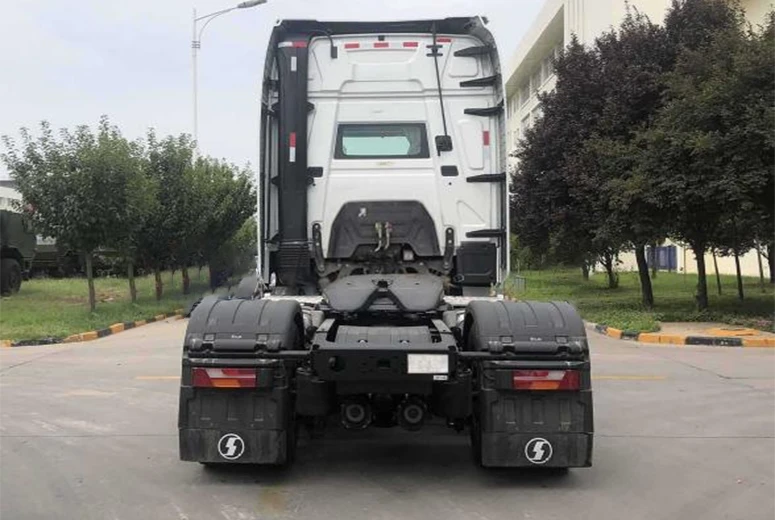horse trailer
The Essential Guide to Horse Trailers Everything You Need to Know
Horse trailers are an integral part of equestrian life, providing a safe and reliable means to transport your horses from one location to another. Whether you’re heading to a competition, taking your horse for a routine veterinary checkup, or just visiting a new countryside trail, having the right horse trailer can make all the difference. Here's everything you need to know about horse trailers, from types and features to maintenance and safety tips.
Types of Horse Trailers
There are various types of horse trailers designed to meet different needs, and understanding these options is crucial for choosing the right one
1. Straight Load Trailers These are the most common type of horse trailers. Horses are loaded from the rear and face forward during travel. They generally come in 2-horse or 4-horse configurations, and some models even offer a removable divider for versatility.
2. Slant Load Trailers In slant load trailers, horses are loaded at an angle, allowing for a more compact design. They often have a shorter overall length, making them easier to maneuver.
3. Stock Trailers These are open trailers typically used for transporting livestock but can be adapted for horses. Stock trailers provide excellent ventilation and visibility for the horses, making them ideal for longer trips.
4. Living Quarters Trailers For those who participate in overnight competitions or long-distance travel, living quarters trailers combine the functionality of a horse trailer with comfortable living amenities. They often include sleeping spaces, a kitchen, and bathroom facilities.
Key Features to Consider
When choosing a horse trailer, consider the following features to ensure the safety and comfort of your horses
- Size and Weight Ensure the trailer is the appropriate size for your horse(s). Larger breeds may require more spacious accommodations. Additionally, make sure your towing vehicle can handle the weight of the trailer when fully loaded.
- Ventilation Good airflow is crucial for keeping horses comfortable during transport. Look for trailers with adjustable vents, windows, or escape doors to improve ventilation.
- Safety Features Features like padded dividers, rubber flooring, and breakaway trailers enhance safety. Equestrian organizations recommend having a trailer equipped with a camera system to monitor horses while on the road.
horse trailer

- Ease of Loading A low deck height and a ramp make loading and unloading horses easier and safer. Features like a rear ramp, side doors, and escape doors can significantly facilitate this process.
Maintenance Tips
Proper maintenance is essential for ensuring the longevity of your horse trailer, as well as the safety of your cargo
- Regular Inspections Routinely inspect your trailer for signs of wear and tear, including the brakes, lights, axles, and tires. Replace any worn-out parts immediately.
- Cleaning Keep the interior clean and free from manure, dirt, and debris that can lead to unsafe footing for your horse. Regular cleaning also helps prevent odors and pest infestations.
- Check the Flooring Horse trailer floors endure a lot of stress. Inspect the flooring regularly for rot and damage, and consider replacing the mats to maintain a safe, slip-resistant surface.
Safety Precautions
Transporting horses can be stressful, both for the horse and the owner. Implementing a few safety precautions can alleviate anxiety and ensure a smoother journey
- Travel with a Companion If possible, take a companion horse to minimize stress for your traveling horse. Horses are herd animals and can feel more secure with a buddy by their side.
- Keep the Horse Calm Practice loading and unloading your horse in a safe environment prior to hitting the road. Consider playing soothing music during the journey to create a calming atmosphere.
- Have an Emergency Plan Be prepared for the unexpected. Carry a first-aid kit for both horse and human, and establish a plan for emergencies like a flat tire or a horse that doesn’t want to load.
In conclusion, owning a horse trailer is a significant responsibility, but with the right knowledge and care, you can ensure safe and enjoyable travels for both you and your horse. Whether you're a seasoned equestrian or a novice owner, understanding the ins and outs of horse trailers will undoubtedly enhance your equestrian experience.
-
Premium Body Chassis Car Solutions Durable Car Body Chassis & Square Body Chassis ManufacturerNewsJun.10,2025
-
Passenger and Commercial Vehicles Versatile Solutions for Every Need High Performance, Reliable SafetyNewsJun.10,2025
-
12 Passenger Vehicles for Rent – Spacious, Comfortable Multi-Passenger Rental OptionsNewsJun.10,2025
-
High-Quality Auto Headlights Durable Designs & Wholesale PricingNewsMay.30,2025
-
70 Seater Coach Hire - Spacious & Reliable Group Transportation SolutionsNewsMay.30,2025
-
High-Efficiency Crop & Land Cultivation Machines for Modern FarmsNewsMay.30,2025
Popular products

























